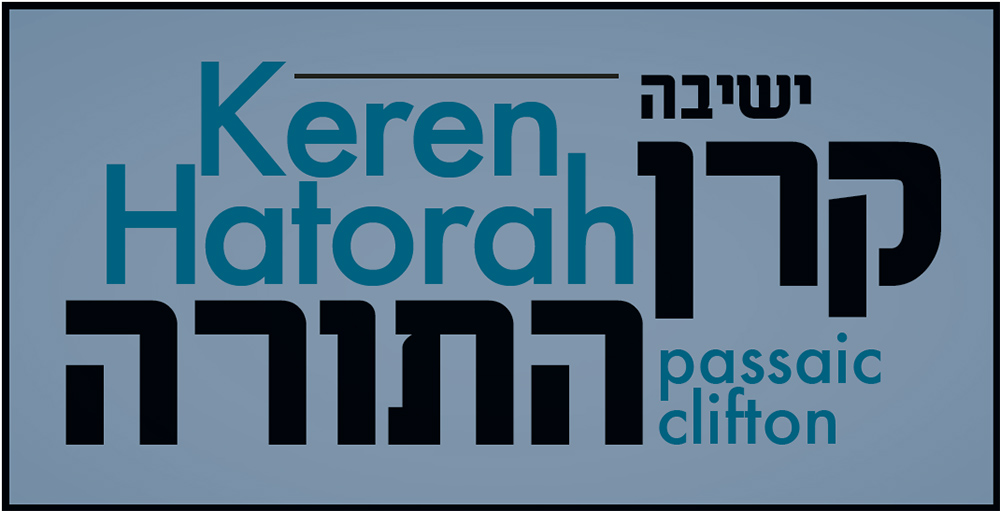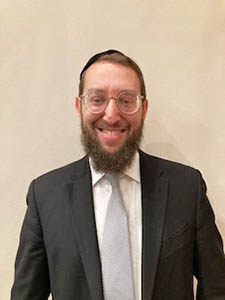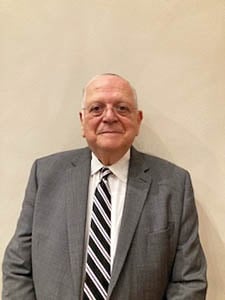A new mesivta with a compelling educational model is just a year away from becoming a reality. Yeshiva Keren Hatorah of Passiac-Clifton (YKHPC) is the brainchild of Harav Eliyahu Weiner, who will be its rosh yeshiva. Rabbi Weiner, along with principal Rabbi Dr. Wallace Greene, recently sat down with The Jewish Link to share the educational model of the mesivta. Their excitement was palpable.
Rabbi Weiner explained that the concept has been in his mind for quite awhile and has been in the process of being concretized for the better part of three years. The basic structure calls for the best of both worlds, a serious limudei kodesh program “with strong emphasis on midos and mussar from classical seforim that will be woven into the learning throughout the day,” followed by a complete set of secular study coursework. Rabbi Greene added that these would include four-five periods of history, English, mathematics, science and computer science, all with the goal of developing analytical skills and providing each student a solid background to continue his limudei kodesh after graduation, with the foundation to enter the business world if he so chooses.
Rabbi Weiner’s plans to shape the mesivta are based on his own background and positive influences. As the grandson of HaGaon Harav Chaim Pinchos Scheinberg, zt”l, he spent close to 20 years learning in Yeshiva Chofetz Chaim and the Mir, and was imbued with the conviction that iyun haTorah and mussar are critical elements in shaping a student. He went on to serve as rosh chabura in the yeshiva’s beis medrash and kollel. From 2010-2022, he served as rosh yeshiva at Yeshiva Zichron Paltiel of Staten Island, where he was known for his warmth and compassion for everyone who crossed his path, developing a strong rapport with students, parents and colleagues alike.
Rabbi Weiner’s background complements that of Rabbi Greene, who has degrees in both English literature and history, and has had a long leadership career at various yeshivot in the New York-New Jersey area. He is particularly proud of taking a small school in Newark-South Orange known as the Hebrew Youth Academy of Essex County and building it into what is now the Joseph Kushner Hebrew Academy in Livingston, where he served as principal for a decade. He also founded the Sinai School at a time when there were no options for the developmentally disabled in New Jersey.
Working with both of them in an academic consultative role will be Rabbi Dr. Yaakov Zvi Nierman, an educator, administrator and principal who has over five decades of experience. Rabbi Dr. Nierman has conducted numerous educational workshops and has chaired panels both locally and nationally. In his role at YKHPC, he sees himself as the motivator and facilitator of scholarship in limudei chol.
Rabbi Greene offered that part of the reason for their excitement is based on the groundswell of local people whose needs align very well with the YKHPC model. They have reached out to parents of seventh graders to discuss the concept, with many contacting them after hearing what the program plans to offer.
Rabbi Weiner was quick to point out that every mesivta and yeshiva has its purpose in serving the needs of its students, but he is particularly proud of the model that the leadership of his mesivta plan to initiate. He mentioned that he has received the support of local rabbonim and lay leaders, and is in the process of assembling both a board of trustees and a rabbinical board. He already has most of the limudei kodesh staff in place, adding “these are experienced, dynamic professionals who are caring, loving and will go the extra hundred miles to relate to students.” He also shared his belief that each student is a “unique world to himself and must be approached in his own special way to maximize his potential.”
Rabbi Greene added that the planned small classes will help achieve the goal of connecting with each student as an individual. ”Rather than sitting through lectures, the approach to the shiurim will be an interactive one,” noted Rabbi Weiner. Additionally, and this was given particular stress, the relationships will not end in the classroom. A major emphasis will be to connect each student and his family with the rebbeim outside of school hours. These will take the form of in-Shabbatot, field trips, melave malkas, opportunities for additional formal and informal Thursday night shiurim complete with cholent, and Friday night oneg Shabbos’ at the tables of the rebbeim, all designed to form a family type bond. “After all,” noted Rabbi Greene, “eating at a rav’s table offers a far greater opportunity to connect than sitting in a classroom behind a desk.”

Rabbi Weiner listed the principles of the mesivta, which included creating a wholesome, well-balanced spiritual and academic program with an emphasis on maximizing the internals of each student. To that end, no smartphones or other devices will be allowed in an effort to minimize distractions. In order to successfully introduce comprehensive limudei kodesh and secular programs, activities that may consume too much time will be avoided. However, that doesn’t mean there won’t be plenty of opportunities to let off steam, with plans for intramural sports, basketball, a game room and more all in the cards.
Both Rabbi Weiner and Rabbi Dr. Greene view YKHPC as primarily a local yeshiva for those in northern New Jersey, but strongly believe it has much to offer the greater community as well.
In closing, Rabbi Weiner envisions YKHPC as being a serious program but not overly intense. “We want the love of learning to come organically to each student, with the wish to succeed coming from within.”
For more information or to make an appointment, call (47) 604-0697 or email [email protected].
Robert Isler is a marketing researcher and freelance writer. He can be reached at [email protected].














